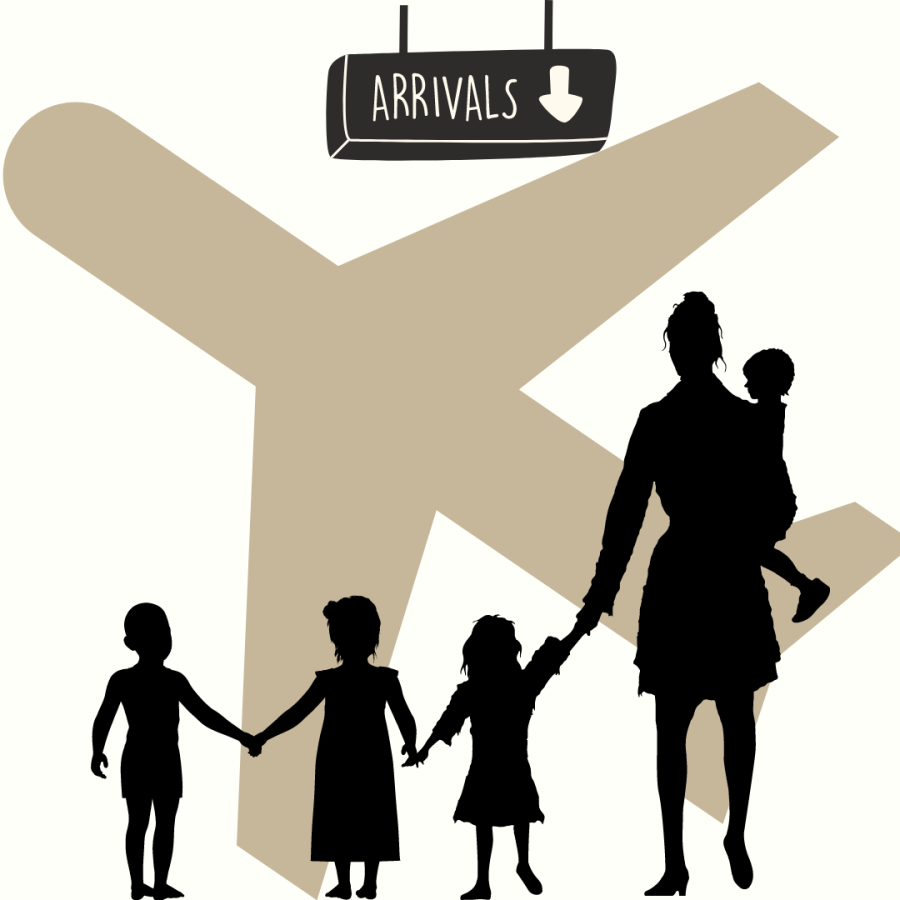Russia’s invasion of the Ukraine earlier this month has sparked global outrage and sympathy for the 44 million citizens of the country. Across Europe, countries have opened their borders to welcome Ukrainian asylum seekers and refugees. However, experts have pointed out that the response to this refugee crisis differs greatly from those we’ve seen with Middle Eastern and African refugees.
This discrimination is noticeable in Poland, where the European country has received over 1.3 million Ukrainians as of March 8, 2022, although previously denying entry of Middle Eastern asylum seekers in 2015.
“All refugees who come to the Polish-Ukrainian border will be accepted in Poland,” said Zbigniew Rau, Poland’s Minister of Foreign Affairs.
Not quite. Experts claim that non-white asylum seekers have trouble finding refuge when compared to those that are white. On some accounts, Asian and African students face issues when crossing into countries accepting predominantly white refugees, like Poland.
According to Politico, Poland has previously refused to accept the European Union’s distribution of refugees from the Middle East. Political representatives of the country claimed that acceptance of Syrian refugees would “change our culture and radically lower the safety level of our country.”
This trend of discrimination isn’t something to be ignored, with many pointing out a different global response between Ukrainian and Syrian refugees. When Syria’s civil war began in 2011, 6.6 million refugees fled the country. Since the war began over a decade ago, just one million Syrians have been accepted into Europe — a number that pales in comparison to the rates of Ukrainian refugee’s placements.
When compared to the Ukraine crisis, Syrian refugees received less opportunity for placement and less sympathy from the world. It is obvious in the response of the media, world leaders and our own, that countries like Poland are not alone in their bias.
Speaking to WION News, Syrian refugee, Ahmad Al-Hariri said, “We are wondering, why are Ukrainians welcome in all countries? While we, Syrian refugees, are still in tents and no one is looking at us?”
On Feb. 26, CBS foreign news correspondent Charles D’Agata said, “This isn’t a place, with all due respect, like Iraq or Afghanistan. This is a relatively civilized, relatively European city — I have to choose those words carefully — where you wouldn’t expect that.”
Upon “carefully” choosing his words, one can only assume that D’Agata’s carefully chosen words meant that Middle Eastern countries like Syria are acclimated to war, and their civilians are better suited to bombings in their backyards. This ethnocentric viewpoint is racist as it asserts that European societies are undeserving of the tragedy of war, due to their inherent “civility.” It lacks empathy for the hardships of being a refugee based solely on the color of one’s skin.
Echoing the same sentiment, Al Jazeera anchor Peter Dobbie said, “These [Ukrainian refugees] are prosperous, middle-class people. They look like any European family that would live next door to you.”
According to World Vision, the Syrian refugee crisis is the world’s largest displacement of our time.
Currently, 6.8 million civilians are seeking asylum, and another 6.7 million are displaced within the country. Nearly 11.1 million need humanitarian assistance and live without access to healthcare, sanitation, water and utilities. More than 80% of Syrians live in extreme poverty.
No matter one’s country of origin, these are the effects of war. Although tragedy doesn’t strike based on the color of a victim’s skin, the selective care offered to refugees of predominantly white countries proves that even war isn’t equitable.
Is it the collective disdain towards Russia and its leader that has pushed the world to welcome Ukrainian refugees so abundantly? Possibly.
Maybe it’s the desensitization we often have towards those who live in parts of the Middle East or Africa — the desensitization to their pain. We have watched war rage on with countries like Afghanistan during the Global War on Terror for years following 9/11 and even before that.
Are we too used to seeing this part of the world through the yellow fog Hollywood movies and news broadcasts show us? In their collapsed buildings, broken cities and countless cries for help against our own pervasion, have we tuned them out? Or is it the color of their skin, not just Syrian refugees but those in Ukraine, that has deemed them unworthy of the world’s care and hospitality?
Athena Jreij is a junior studying journalism. Follow her on Twitter @JreijAthena.








